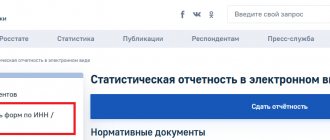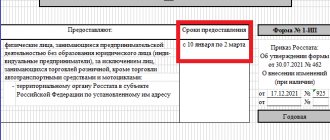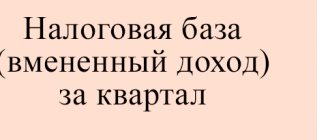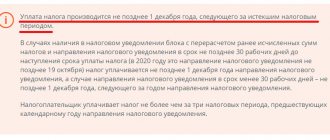Taxation systems in the Russian Federation
Any newly registered organizations or individual entrepreneurs apply the general taxation regime by default.
It involves the payment of the main taxes in force in Russia, the list of which is given in Chapter. 2 part 1 of the Tax Code of the Russian Federation. In addition to OSNO, a taxpayer has the right, upon application, to use special regimes that exempt from payment of a number of taxes established for OSNO, replacing them with another tax or a system of tax benefits.
Recommendations for choosing a tax regime What is the difference between the simplified tax system and the OSNO? Which is more profitable? What are the possibilities for optimizing taxes under the simplified tax system? Choosing a tax system for an LLC in 2022
Today the following special regimes are in effect in the Russian Federation:
- Unified Agricultural Tax is a taxation system for agricultural producers (Chapter 26.1 of the Tax Code of the Russian Federation), is a basic taxation system (i.e., the enterprise as a whole, and not a separate type of activity, switches to it), it can be used by firms and individual entrepreneurs carrying out strictly defined activities in relation to a certain type of product;
- STS - simplified (Chapter 26.2 of the Tax Code of the Russian Federation), is also a basic system, it can be used by companies and individual entrepreneurs, regardless of the type of activity, but having limited amounts of income and meeting certain criteria in terms of number of personnel, book value of fixed assets, etc.;
- UTII (until 01/01/2021) - imputation (Chapter 26.3 of the Tax Code of the Russian Federation), it could be used by companies and individual entrepreneurs in relation to strictly defined one or several types of activities;
- PSA is a taxation system for the implementation of a production sharing agreement (Chapter 26.4 of the Tax Code of the Russian Federation), used in relation to all activities by one legal entity or an association of legal entities when, within the framework of an agreement, the search and production of mineral raw materials in a subsoil plot that belongs to the state;
- PSN is a patent taxation system (Chapter 26.5 of the Tax Code of the Russian Federation), applied only to individual entrepreneurs in relation to strictly defined types of activities.
Combination of tax regimes for one type of activity in one region
The next restriction is the ban on conducting activities on two aids to taxation (STS and PSN) in the same region for the same type of activity.
This prohibition is described in the letter of the Federal Tax Service of the Russian Federation dated March 28, 2013 No. ED-3-3/1116. This is justified by the fact that the patent is valid within the region as a whole and is not limited to any object or objects.
There is also a letter from the Ministry of Finance dated 04/05/2013 No. 03-11-10/11254, in which the position is the opposite, i.e. the use of simplified taxation system and PSN in one region within one region at different facilities is permitted.
As a result, here is another “slippery” situation in which everything will depend on how the above documents are interpreted, so before applying for a patent, it is worth getting clarification on this issue from your Federal Tax Service.
If for the same type of activity the PNS is used for one object and the simplified tax system for another, but they are located in different regions, then you do not violate any restrictions.
Is it possible to combine OSNO and simplified tax system according to the Tax Code of the Russian Federation?
The possibility of applying the simplified tax system does not depend on the type of activity carried out by the company or individual entrepreneur, but on the scale of the activity.
Important! ConsultantPlus warns: It is prohibited to use the simplified tax system for certain types of activities. So, they cannot work on the simplified tax system: (for more details, see K+, free).
Simplified taxation and OSNO are the basic taxation systems, which explains the impossibility of their simultaneous application. This position is supported by the Ministry of Finance in its letters dated October 20, 2017 No. 03-11-06/2/68765, dated September 8, 2015 No. 03-11-06/2/51596.
The courts adhere to a similar position (rulings of the Constitutional Court of the Russian Federation dated October 16, 2007 No. 667-О-О, Supreme Arbitration Court of the Russian Federation dated October 4, 2011 No. VAS-13098/11 in case No. A06-6415/2010).
Tricky arithmetic: USN vs OSN. Tax disputes of Nizhny Novgorod entrepreneur E.I. Lazarev
One can often observe that the development of law enforcement in a particular area occurs in a spiral: only a certain incident has appeared and excited minds, and after some time (sometimes, however, after a considerable time), practice finds approaches to it, variants of solutions. And it may seem that if not everything, then a lot has already been said, clarified and accepted by the professional community.
But suddenly life takes another turn, and we again find ourselves faced with the same question, only now enriched with new details, for which past approaches lose relevance and pale before the demands of the demanding present.
It is interesting that such semantic changes are characteristic even of the fundamental principles of law.
Thus, we recently encountered an extremely interesting tax dispute, the cornerstone of which was the different understanding by law enforcement officials of the principle of avoiding double taxation of the same economic entity.
It would seem that there cannot be two opinions on this issue. And the Tax Code, following the Constitution, stipulates that taxes must have an economic justification and cannot be arbitrary (Article 57 of the Constitution of the Russian Federation, paragraph 3 of Article 3 of the Tax Code of the Russian Federation). And the Constitutional Court of the Russian Federation has repeatedly emphasized that double taxation of the same economic entity violates the principles of equal, fair and proportionate taxation[1].
However, a dispute arose, and that was the case.
The tax inspectorate simultaneously carried out on-site tax audits in relation to 6 organizations that have a common beneficiary - Nizhny Novgorod entrepreneur E.I. Lazarev. All companies were the owners of commercial premises in two shopping centers, rented out their property and applied a special tax regime - a simplified taxation system.
As a result of inspections, the inspectorate found that there were two consolidated groups that used the “business fragmentation” scheme.
The companies had a common beneficiary, however, the tax office divided the companies into two groups, taking as a basis two different addresses for the location of retail space. So, a group appeared (from the name Furniture) and a group (from the name Construction).
The tax inspectorate found that in the audited period, the total amount of income of organizations exceeded the income limit for which the simplified tax system can be used, and obliged the 2 main companies of consolidated groups to calculate and pay taxes according to the general taxation system.
In relation to “fractional” companies, decisions were made to refuse to hold them accountable, while the decisions indicated that the taxpayers had no real economic activity in the audited period.
It is important to note that none of the decisions on the results of the GNP, nor in the requirements for the payment of taxes under the OSN, contained any mention of the fate of the simplified tax system previously paid by companies.
The decisions regarding the Main Companies were disputed by taxpayers, but the conclusions of the tax authorities were supported by arbitration courts of all instances (the history of the consideration of disputes can be tracked by case numbers: No. A43-34833/2018, No. A43-34835/2018, we will leave their detailed analysis outside the brackets, since for our review it is not of great importance).
As a result, the Main Companies paid in full the arrears, penalties and fines under the general taxation system. “Fractional” companies filed updated “zero” declarations. Then all 6 organizations applied to the tax authority in accordance with paragraph 7 of Art. 78 of the Tax Code of the Russian Federation with applications for the return of overpayments under the simplified tax system for the same period. The total amount of taxes paid by six companies under the simplified tax system was about 40 million rubles.
And this is where the fun begins! The Tax Inspectorate denies all taxpayers a refund of overpaid tax under the simplified tax system, citing... the lack of appropriate entries in the budget settlement card (CRSB).
The refusal to refund the tax was the reason for seeking judicial protection.
The position of the taxpayers was quite fair: since the main companies paid taxes according to the general taxation system, and fractional companies, in the opinion of the tax inspectorate, do not have real economic activity (and therefore have a taxable base according to the simplified tax system), then the simplified tax system previously paid by all companies is subject to refund. A different reading would mean double taxation of the same economic entity for the same tax period, which is expressly prohibited by law.
It should be noted that similar cases on the inadmissibility of double taxation in cases where the inspectorate recognized the application of special tax regimes as unfounded took place in the practice of arbitration courts. The courts have repeatedly accepted the position of taxpayers and satisfied demands for the return of overpaid taxes[2].
Alas, not this time. In Nizhny Novgorod disputes (see case No. A43-5792/2020, A43-3914/2020), the courts of two instances supported the tax authority’s refusal to refund tax to “fractional companies”.
It is noteworthy that the courts did not see any signs of double taxation when taxes were paid simultaneously under the simplified tax system and the special tax system. Moreover, they did not even touch on the question of whether, in this case, the previously paid tax under the simplified tax system is an overpayment. The tax office, which is noteworthy, without disputing the facts of 1) payment of the simplified tax system by all six companies for the disputed period and 2) payment of arrears from the total income by two main companies under the simplified tax system, asserted with admirable persistence that there was no overpayment.
The courts did not go into details and subtleties, but chose the simplest path: by refusing to satisfy the taxpayers' demands, the courts considered the deadline for filing an application for a tax refund had missed.
At first glance, there is nothing extraordinary: the plaintiff missed the statute of limitations, therefore, the subjective right to protect substantive rights cannot be realized.
And yet, the reasons why the courts considered the deadline to be missed require close attention. For a more detailed analysis of the right case, let us allow ourselves a small digression into theory.
Collection of overpaid tax as a way to protect the rights of the taxpayer
The requirement to recover overpaid taxes is applied, as a rule, in cases where the possibility of filing a non-property claim to challenge the inspection decision is lost due to the expiration of the three-month period for going to court (Part 4 of Article 198 of the Arbitration Procedure Code of the Russian Federation) or when it is impossible to comply with the pre-trial procedure due to the expiration of the one-year period for filing a complaint (clause 2 of Article 139 of the Tax Code of the Russian Federation).
Such claims, representing a claim for unjust enrichment, can be presented within the general three-year limitation period established by the Civil Code of the Russian Federation[3].
Thus, for claims for the return of overpaid taxes, the general civil statute of limitations applies if the taxpayer missed the three-year period established by paragraph 7 of Article 78 of the Tax Code of the Russian Federation for tax refund in an administrative procedure, which is calculated from the moment of payment.
The moment when the taxpayer learned about the overpayment
It is recognized that in a claim for the return of overpaid taxes, the period is calculated from the moment when the person learned or should have learned of a violation of his right to pay taxes in the proper amount. This occurs if correct calculation was impossible due to objective and valid reasons beyond the control of the taxpayer [4] .
In cases No. A43-5792/2020, No. A43-3914/2020, taxpayers indicated that they learned about the incorrect application of the simplified tax system as a result of on-site tax audits carried out against them. Before the GNP, declarations under the simplified tax system were accepted by tax authorities without complaints for several years, and therefore there was no reason to doubt the correctness of the fulfillment of their tax obligations. Taxpayers reported the beginning of the three-year period from the date of entry into force of decisions based on the results of the GNP.
Here it would be appropriate to recall the position of the Constitutional Court of the Russian Federation, which has repeatedly noted: the application of previously established conditions for the implementation of rights and freedoms should be carried out on the basis of the principle of maintaining citizens’ trust in the law and the actions of the state (rulings dated 03.03.2015 No. 417-O, dated 02.04. 2015 No. 583-O).
The taxpayer has the right to assume that if the tax authority does not contact him for explanations or documents confirming the declared taxes, then the tax authority has no doubts about the correctness of the payment of taxes. Otherwise, it would mean a violation of the principle of legal certainty and would lead to the arbitrariness of the tax authorities (definition of the Constitutional Court of the Russian Federation of July 12, 2006 No. 267-O).
Another extremely interesting case affecting the principle of legal certainty and “justified legal expectations” of taxpayers was considered in 2022 by the Supreme Court. In the ruling of the SKES of the Supreme Court of the Russian Federation dated 03/06/2018 No. 308-KG17-14457 in the case of IP Mokina D.G., the judicial panel also drew attention to the validity of the legal expectations of the taxpayer in the absence of decisions on holding liable based on the results of an audit of previously submitted declarations.
However, in the disputes of Nizhny Novgorod entrepreneur E.I. Lazarev's courts did not support the taxpayer's arguments, pointing out that the period for filing a claim with the court for a refund of overpaid taxes should be calculated from the date of payment of the tax. As the reason for such calculation of the period, the courts indicated that, acting within the framework of the business fragmentation scheme, all participants in the scheme acted intentionally, and, therefore, knew about the unlawful application of the special tax regime already at the time of payment of the simplified tax system , and not after the decision on the results came into force GNP.
Since we were talking about the refund of taxes under the simplified tax system paid for 2013-2015, then with such “calculations”, of course, at the time of filing a claim in 2022, the deadline for refund was missed. Moreover, according to this logic, the deadline for a refund was missed even before the tax audit began, which in itself is absurd!
It seems that the approach of the courts in cases No. A43-5792/2020, No. A43-3914/2020 does not stand up to criticism.
The mere fact of holding a taxpayer accountable for receiving an unjustified tax benefit does not deprive him of other tax rights (in this case, the right to a refund of overpaid taxes). Otherwise, in addition to legally established fines for committing tax offenses, there would be hidden forms of liability.
Paragraph 11 of the Resolution of the Plenum of the Supreme Arbitration Court of the Russian Federation dated October 12, 2006 No. 53 tells us the same thing, which establishes that recognizing a tax benefit as unjustified should not affect other rights of the taxpayer provided for by the legislation on taxes and fees. This legal position is consistently applied by the Supreme Court of the Russian Federation and arbitration courts[5].
It is also noteworthy that in the analyzed Nizhny Novgorod cases, the only argument of the tax inspectorate about the legality of its refusal to refund overpaid tax is the lack of data on the overpayment in the CRSB. And this despite the fact that updated declarations were filed, which should have been taken into account by the tax office itself in the taxpayer’s card.
In addition, tax legislation, in particular Art. 54, 54.1, art. 78 of the Tax Code of the Russian Federation, in principle, does not make the emergence of the taxpayer’s right to offset/refund of overpaid tax dependent on the reflection/non-reflection of the relevant data in the cards of settlements with the budget.
Obviously, the cause of the problem is unscrupulous tax administration, and not at all missed deadlines or taxpayer abuses committed in another tax legal relationship. It seems that, relying on formal conditions and procedures, the tax authority is trying to avoid responsibility for its own carelessness.
The Supreme Court of the Russian Federation has repeatedly indicated that tax administration should be carried out taking into account the principle of good faith, which implies taking into account the legitimate interests of taxpayers and the inadmissibility of creating formal conditions for collecting taxes in excess of what is required by law[6]. However, the Arbitration Court of the Nizhny Novgorod Region, unfortunately, twice did not find a reason to appeal to this position of the highest court.
How and at what point is it possible to reduce the actual tax liability by the amount of previously paid taxes?
On this issue, judicial practice has determined the following legal position: reducing the obligation to pay arrears should be decided by the inspectorate independently at the stage of executing the decision made based on the results of the tax audit[7].
In Resolution No. 15638/12 dated April 16, 2013, the Presidium of the Supreme Arbitration Court of the Russian Federation indicated that in order to carry out the offset, it is necessary to fix the corresponding amounts in the inspection decision.
Thus, the inspection must (1) reflect the corresponding amounts of the simplified tax system in the decision; (2) if an arrear is identified, independently offset the single tax paid in connection with the application of the simplified tax system against the arrears of income tax credited to the budget of a constituent entity of the Russian Federation, and/or against the property tax of organizations, and then (3) adjust the amount of taxes payable upon issuing a claim for payment of accrued tax payments.
It seems that the failure of the tax inspectorate to reflect in the decision on the results of the GNP (even if a decision is made to refuse to hold the taxpayer liable for taxation) the amounts of the single tax paid in connection with the application of the simplified tax system is a reason for appealing the inaction of the tax authority in an administrative manner.
The absence of a corresponding adjustment in the requirement to pay accrued tax payments gives the taxpayer the right to challenge such a requirement in accordance with Chapter 24 of the Arbitration Procedure Code of the Russian Federation (after observing the mandatory pre-trial dispute resolution procedure).
Eternal questions: who is to blame? and what to do?
Disputes regarding the remaining two “main” companies and two fractional ones are still in the process of consideration by the Arbitration Courts of Moscow (transferred from the Arbitration Court of the Nizhny Novgorod Region) and the Nizhny Novgorod Region.
Taking into account the already issued judicial acts, there is little hope for a different legal position of the courts in cases that have not yet been considered. According to the entrepreneur himself, he is determined to defend his rights to the highest courts.
In any case, the conclusions regarding the disputes of Nizhny Novgorod businessman E.I. Lazarev are important in general for small and medium-sized businesses, because this is where the need to apply special tax regimes arises. And, as can be seen from judicial practice, a significant number of disputes related to “business fragmentation” come before arbitration courts[8].
In the case of additional arrears accrued to taxpayers under the OSN, the refusal to refund taxes paid under a special tax regime obviously leads to double taxation. After all, if the income of “fractional” companies is considered income, the main income of the main companies of consolidated groups is recognized as income subject to taxation under the general taxation system, all taxpayers (both main and dependent) have the same object of taxation, which is a mandatory element of taxation by virtue of Art. 17 of the Tax Code of the Russian Federation.
And even if the taxpayer is held accountable for illegal tax optimization, then bad faith in itself when creating a “tax scheme” should not affect the taxpayer’s other rights, in particular, the right to a refund of overpaid tax. With a different approach, double taxation becomes something like a hidden double responsibility for tax optimization: in addition to penalties and fines under the OSN, there is also the impossibility of returning previously paid tax under a special tax regime.
The initiative to introduce special tax regimes in Russia belonged to the Government and was aimed at reducing the tax burden on small businesses. It is also important to note that such tax revenues are fully credited to the regional budgets, in contrast to the general taxation system, where tax revenues are distributed between the regions and the federal budget. Thus, the use of special tax regimes solves another problem - financing regional development.
And although small businesses currently have a very modest share of participation in the country’s economy, it seems extremely undesirable to completely destroy it with unjustifiably conservative regulation. That is why it is difficult to overestimate the importance of developing adequate practice of law enforcement of special tax regimes.
[1] This postulate follows from Articles 19, 55 (part 3) and 57 of the Constitution of the Russian Federation (see Resolution of the Constitutional Court of the Russian Federation dated 06/03/2014 No. 17-P; definitions dated 12/14/2004 No. 451-O, dated 10/01. 2009 No. 1269-О-О, dated 03/05/2014 No. 590-О, etc.)
[2] Determinations of the SKES of the Supreme Court of the Russian Federation on the cancellation of acts of arbitration courts with the referral of cases for new consideration dated 03/06/2018 No. 304-KG17-8961 and dated 09/30/2019 No. 307-ES19-8085; resolutions of the Administrative Court of the East Siberian District dated March 26, 2018 in case No. A33-29597/2016 and dated January 21, 2019 in case No. A33-29597/2016, and the Administrative Court of the North Caucasus District dated March 12, 2020 in case No. A32-7813/2019.
[3] Viktor Batsiev, Andrey Lovchinovsky. Protection of taxpayers' rights. Part I. https://podderzhka.org/taxpro/taxconf/zaschita-prav/
[4] See paragraph 79 of the Resolution of the Plenum of the Supreme Arbitration Court of the Russian Federation dated July 30, 2013 No. 57 “On some issues arising when arbitration courts apply part one of the Tax Code of the Russian Federation.”
[5] Thus, with reference to the specified provision of the Resolution of the Plenum of the Supreme Arbitration Court of the Russian Federation dated October 12, 2006 No. 53, the Supreme Court of the Russian Federation issued Determinations on the cancellation of acts of arbitration courts with the referral of cases for new consideration dated March 6, 2018 No. 304-KG17-8961 and dated September 30 .2019 No. 307-ES19-8085.
[6] This is stated, for example, in the Determination of the SKES dated August 3, 2018 No. 305-KG18-4557, included in the “Review of the judicial practice of the Supreme Court of the Russian Federation No. 4 (2018)”, approved by the Presidium of the Supreme Court of the Russian Federation on December 26, 2018.
[7] Resolutions of the Presidium of the Supreme Arbitration Court of the Russian Federation dated September 25, 2012 No. 4050/12 and dated April 16, 2013 No. 15638/12, Determination of the Supreme Arbitration Court of the Russian Federation dated August 3, 2018 No. 305-KG18-4557, resolutions of the Arbitration Court of the North-Western District dated February 21, 2019 to case No. A05-13684/2017, AS of the East Siberian District of 01/18/2018 in case No. A19-12180/2016, AS of the West Siberian District of 08/18/2017 in case No. A27-12756/2017 and many others.
[8] Over the past 3 years, the Supreme Court alone has issued about 100 acts on specific cases related to business division.
Combination of tax regimes for legal entities
Currently, firms have the right to use OSNO, Unified Agricultural Tax, simplified taxation system and PSA.
PSA is generally not combined with any taxation system, since under this regime the organization’s activities are completely preferential.
Also, the company’s activities under the Unified Agricultural Tax are completely transferred to a special regime (until 01/01/2021, it was permissible to use UTII for certain types of activities).
Possible combinations of tax regimes for firms are shown in Table 1.
Table 1
| Mode | BASIC | Unified agricultural tax | simplified tax system | UTII (until 01/01/2021) | PSA |
| BASIC | X | — | — | + | — |
| Unified agricultural tax | — | X | — | + | — |
| simplified tax system | — | — | X | + | — |
| UTII (until 01/01/2021) | + | + | + | X | — |
| PSA | — | — | — | — | X |
Combination of tax regimes for individual entrepreneurs
The possibilities of individual entrepreneurs in terms of combining taxation regimes are significantly wider than those of companies, due to the PSN, which can be used in conjunction with any other system used by the individual entrepreneur, since certain types of activities are transferred to the PSN.
Look at examples of combining the patent and simplified taxation systems in the material “Is it possible to combine the simplified tax system and the PSN (examples)?”
Possible combinations of taxation regimes for individual entrepreneurs are shown in Table 2.
table 2
| Mode | BASIC | Unified agricultural tax | simplified tax system | UTII (until 01/01/2021) | PSN |
| BASIC | X | — | — | + | + |
| Unified agricultural tax | — | X | — | + | + |
| simplified tax system | — | — | X | + | + |
| UTII (until 01/01/2021) | + | + | + | X | + |
| PSN | + | + | + | + | X |
Income limit
According to paragraph 6 of Art. 346.45 of the Tax Code of the Russian Federation, the limit on annual revenue should not exceed 60 million rubles if an individual entrepreneur wants to combine the simplified tax system and the PSN.
Exceeding this value leads to the loss of the opportunity to use the patent from the beginning of the tax period. If the established limit is exceeded, the individual entrepreneur loses the right to apply the patent from the beginning of the tax period.
The tax period is equal to the validity period of the patent. The validity period of a patent can be 1 – 12 months.
If an individual entrepreneur has several patents received during the year, he loses the right to apply PSN for the type of activity for which the income limit was exceeded. Consequently, in this area, the individual entrepreneur will switch to the simplified tax system from the beginning of the tax period
The individual entrepreneur received two patents:
- from February 1 to July 30;
- from August 1 to December 31.
In September, the entrepreneur exceeded the limit (60 million rubles) cumulatively since the beginning of the year. Despite the fact that the excess was in September, the transition to the simplified tax system due to the excess will be counted from August, i.e. from the beginning of the second patent.
This means that the individual entrepreneur must re-calculate the tax base from August 1, take into account income and, if necessary, expenses that were incurred after August 1 under the patent (letter of the Ministry of Finance dated August 7, 2019 No. 03-11-11/ 59523).
Results
The combination of OSNO and simplified tax system is unacceptable. These tax systems are alternatives to each other. This position has been confirmed more than once by the Ministry of Finance and judicial practice. For certain types of activities, it is permissible to use imputation or the patent system (if we are talking about individual entrepreneurs), combining these regimes with the simplified tax system or OSNO.
Sources: Tax Code of the Russian Federation
You can find more complete information on the topic in ConsultantPlus. Free trial access to the system for 2 days.









